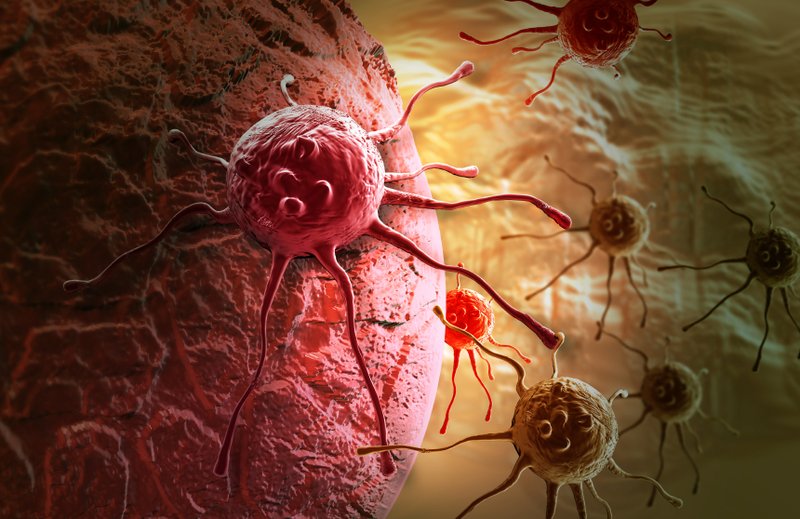Google puts wearable health on steroids

Microsoft has just unveiled their fitness band with the most sensors of any wrist-worn consumer device yet. In total, the "Microsoft Band" packs 10 different types including sensors which allow it to measure heart rate, stress levels, and even UV exposure.
But not a company to sit still, Google has announced the tech giant is working on perhaps the most important and innovative solution yet, cancer detection. Google has developed a "nanoparticle pill" which they will incorporate with a smartwatch to detect the killer disease early through blood analysis.
Conrad compares the current healthcare system as like changing the oil after a car has broken down...
Cancer affects more than 1 in 3 people, so there is a high chance you or someone you know will be diagnosed with the disease at some point. As often cases are detected at late stages, it can make treatment difficult. The good news is that the treatment of many types of cancer are seeing an increasingly high success-rate, as long as it is picked-up on early enough...
Google's research means your future smartwatch will be able to analyse your blood composition and alert you if something is not quite right - so you can seek out immediate medical attention complete with records to assist your doctor. It also means patients won't have to keep returning to their doctor and face regular blood tests, whilst sufferers can leave their hospital beds and be continuously monitored to alert medical staff if their condition changes.
"Our team combines expertise from the fields of biology, chemistry, physics, electrical engineering, computer science, and much more. We focus on the development of new diagnostic tools for physicians - especially the new smart devices that integrate easily into your daily life - and can help change detection, prevention, and treatment of the disease," said a Google spokesman.
The project is led by Dr. Andrew Conrad, a molecular biologist who previously developed the HIV test, and was developed with an affordable cost in mind to reduce the financial and capacity burden which treatment puts on patients and the hospital itself.
The tech giant is working on perhaps the most important and innovative solution yet, cancer detection.
Google's pill helps to detect cancer, even without the smartwatch. Similar to the Y Combinator-backed Bikanta, the cells can fluoresce with certain materials within the nanoparticles and help cancer cells to show up on an MRI scan earlier. Conrad says: "We’re passionate about switching from reactive to proactive, and we’re trying to provide the tools that make that feasible"
In a clever analogy, Conrad compares the current healthcare system as like changing the oil after a car has broken down... "We wouldn’t do that," he says. Again, this is all about allowing healthcare to be proactive instead of reactive, and potentially save lives as a result.
What do you think about Google's wearable health research? Let us know in the comments.
 Interested in hearing industry leaders discuss subjects like this and sharing their use-cases? Attend the co-located IoT Tech Expo, Blockchain Expo, AI & Big Data Expo and Cyber Security & Cloud Expo World Series with upcoming events in Silicon Valley, London and Amsterdam and explore the future of enterprise technology.
Interested in hearing industry leaders discuss subjects like this and sharing their use-cases? Attend the co-located IoT Tech Expo, Blockchain Expo, AI & Big Data Expo and Cyber Security & Cloud Expo World Series with upcoming events in Silicon Valley, London and Amsterdam and explore the future of enterprise technology.

Leave a comment
Alternatively
This will only be used to quickly provide signup information and will not allow us to post to your account or appear on your timeline.